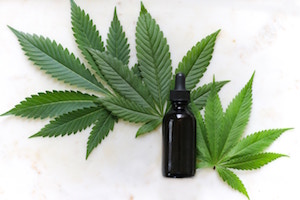Law enforcement agencies expect that the legalization of cannabis in Illinois will provide additional work for police officers who testify as drug recognition experts.
Legalization of Cannabis in Illinois
On January 1, 2020, the state of Illinois legalized the purchase of cannabis for recreational use. Under the Cannabis Regulation and Tax Act (410 ILCS 705), cannabis can be purchased without a prescription from a state-approved dispensary by anyone 21 years or older. Nonresidents are allowed to buy cannabis, but in smaller quantities than Illinois residents.
By passing this legislation, Illinois became the eleventh state (plus Washington, D.C.) to legalize cannabis in the United States. According to Compass Point analyst Rommel Dionisio, who spoke with Bloomberg, Illinois expects to eventually achieve between $2 billion and $4 billion in annual sales.
Illinois reported almost $3.2 million in sales on the first day that cannabis was legalized. These sales represented 77,128 transactions.
Cresco Labs, a vertically integrated multi-state cannabis operator, announced that it had served 3,145 people on New Year’s Day at its five Sunnyside Dispensaries located in Lakeview, Elmwood Park, Champaign, Buffalo Grove and Rockford, Illinois. Cresco’s stores sold 9,258 cannabis products, including Cresco’s house of brands and items from other Illinois suppliers, with an average ticket price totaling $135.
Law Enforcement Agencies Worry About Consequences of Legalization
As Illinois legalizes a substance that can impair a person’s ability to function, it follows logically that there will be an increase of incidents related to people who are accused of driving under the influence of cannabis.
Law enforcement agencies in Illinois began to plan for the increase of incidents involving cannabis before the new year. According to the Chicago Tribune, Illinois law enforcement agencies are calling in new specially trained officers to deal with cases involving cannabis. The need for these specially trained “Drug Recognition Expert” officers arises from the fact that there is no simple breath test to determine impairment after consuming marijuana like there is for alcohol.
What is a Drug Recognition Expert?
Drug recognition experts, or DRE officers, are law enforcement officers who are allegedly trained to classify the type of drug that a person took into one of seven categories using a 12-step evaluation process. Some of the things that these officers evaluate include a person’s pulse, their eye movements, and the size of their pupils.
DRE officers are often qualified to testify as expert witnesses in court as to whether a driver was high or under the influence. Currently, there are only about 160 DRE officers out of the about 40,000 law enforcement officers in the state of Illinois.
DRE officers carry around a set of tools far different from a standard police officer. These special tools include a stethoscope, thermometers, pupil measuring charts, flashlight to shine in someone’s eyes, a black light and blood pressure cuffs.
State’s Attorney for Kane County, Illinois, Joe McMahon, told the Tribune that more officers need training in how to recognize the signs of drug use now that cannabis is legal for recreational use. McMahon said, “It’s an expensive but very important process…I don’t know how many there are in the county, but not every police department has them.”




